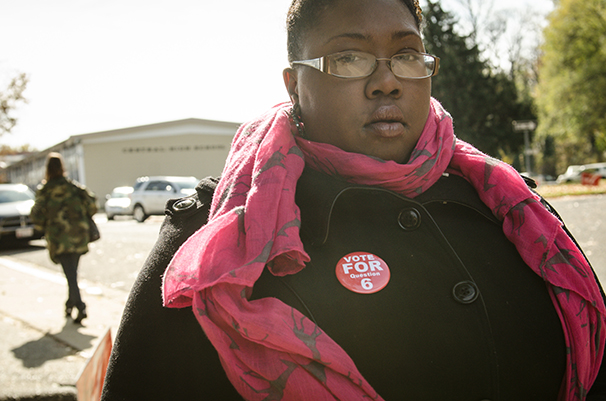
In today’s society, most demographics are concerned about LGBTQ rights, whether they are for or against the issue. Yoruba Richen’s documentary “The New Black,” which opens at Film Forum today, centers on the struggling campaign leading up to the passage of question six in Maryland that upheld marriage equality.
Specifically, the film focuses on the influence of the African-American religious community. Through the exploration of the black church and the black gay population, Richen looks at this historic event through a new lens and give voice to a group that the media often neglects.
Maryland Gov. Martin O’Malley signed the Marriage Equality Act into law in 2012. An immediate backlash from both white conservatives and the black church-going congregation followed the ruling. Richen effectively presents the public image conundrum that ensues.
White conservatives want to blame the black church for anti-gay propaganda and petitions. While most black religious leaders were unaffiliated with white conservative groups, both parties share strong anti-gay views, making it easy to effectively “drive a wedge” between the black and gay voter constituencies.
The clear problem with this strategy is that it does not account for black gays and lesbians, a community that is often ignored and ostracized. The film spotlights this minority’s unique plight.
Viewers meet several homosexual black men, women and couples of all ages and hear about their struggle for acceptance in — or at least coexistence with — the black church, which for many is not only a place to practice religion, but also somewhere to find community, family and support.
A segment about gospel singer Tonex particularly stands out as representative of the black community’s prevalent opinion toward homosexuals. Tonex grew up singing and playing instruments with his father in church and quickly skyrocketed to fame in the gospel world. At the height of his success he felt he could no longer hide his homosexuality, which he had begun to hint at in his music and appearance.
When Tonex definitively came out on a Christian talk show, he was cited by a prominent black religious leader as the reason young people were turning away from God.
As much as Richen clearly wants viewers to sympathize with the supporters of question six, she does give equal weight and screen time to its opponents. These nay-sayers shed light on the rationale and motivations of many in the black church to oppose gay marriage,
However, the most interesting and refreshing presentation of either argument happens at the cookout of LGBTQ advocate Sharon Lettman-Hicks and her family, which consists of both advocates for and opponents of gay marriage. At the event, the group has an open discussion about their differing views on homosexuality without screaming at or belittling each other.
Such honest, natural and intelligent conversation about homosexuality in the media is rare. Richen’s film may focus on black gays and lesbians in one state, but it addresses greater questions about the meaning and function of civil rights, minority, religion and community. “The New Black” is a must-see for anyone who wants to truly understand rare aspects of the gay rights movement.
A version of this article appeared in the Wednesday, Feb. 12 print edition. Ife Olujobi is film editor. Email her at [email protected].

























































































































































